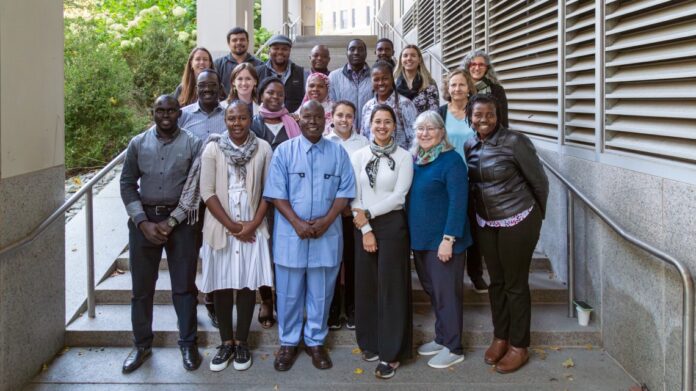The Innovation Lab for Crop Improvement (ILCI) recently hosted a workshop at Cornell University, bringing together sixteen scientists from various agricultural research centers worldwide. The workshop, held from October 1 to 15, was organized to enhance global crop breeding efforts and featured participants from ILCI’s Priority Setting team, Cross-Cutting themes team, and ILCI-supported Centers of Innovation in Burkina Faso, Costa Rica, Kenya, Malawi, Mozambique, Senegal, and Uganda.
About ILCI
The workshop at Cornell University provides information about the Center of Innovation for Crop Improvement for East and Southern Africa (CICI-ESA), focusing on cowpea improvement for yield, disease resistance, adaptation, and nutrition security. The collaborative efforts of institutions in Malawi, Mozambique, and Tanzania aim to develop more nutritious, resilient lines of cowpea by prioritizing farmer and consumer preferences and market demand.
Aim of ILCI
The event aimed to provide comprehensive training on essential resources such as gender-inclusive research design and utilization of the Cornell Library. Additionally, it facilitated networking opportunities and included hands-on team working sessions. According to Martina Occelli, co-lead for ILCI’s Priority Setting team, these sessions allowed researchers to delve into high-impact projects and collaboratively address challenges.
Participants Viewpoint
Belarmino Amadeu Faife Divage
One of the workshop participants, Belarmino Amadeu Faife Divage from the Mozambique Agricultural Research Institute, focuses on analyzing the cowpea value chain in Mozambique. As a social scientist with a background in plant breeding, Divage aims to understand growers’ and consumers’ preferences to influence plant breeding program priorities in the country. He highlighted the importance of studying community dynamics to enhance the adoption of new varieties and technologies in Mozambique.
Naomi Mvula
Participants from Malawi, Naomi Mvula, a social scientist, and John Kafwambira, a plant breeder, are working on enhancing cowpea adoption to address food insecurity in their region. They expressed optimism about interdisciplinary collaboration facilitated by ILCI, believing it will contribute to addressing hunger in East Africa.
Ibrahim Mayanja
Ibrahim Mayanja, a research associate from Uganda, emphasized the need for a deeper understanding of trait preferences for sorghum and millet in the face of climate change. Through his work with ILCI’s East African Center of Innovation for Finger Millet and Sorghum, Mayanja aims to drive demand-driven breeding by characterizing different market segments and developing product profiles.
Benefits of ILCI
The workshop encouraged plant breeders and social scientists to consider multidimensional priorities in crop improvement, encompassing economic, environmental, and nutritional aspects, along with themes of gender equity, youth engagement, inclusion, and resilience. Researchers working on various crops and improvement programs across East Africa, West Africa, Central America, and the Caribbean participated, emphasizing the interdisciplinary nature of their collaboration.
The workshop featured daily open-ended discussions with faculty members from different departments, fostering knowledge exchange and shared experiences. The two-week event concluded with poster presentations, showcasing the outcomes of the collaborative efforts.
In conclusion, the Feed the Future Innovation Lab for Crop Improvement emphasizes a global partnership to co-develop tools, technologies, and methods in crop improvement. By collaborating with scientists and stakeholders worldwide, the lab aims to address local concerns and build equitable community impact. The approach focuses on listening to national agricultural research institutes, allowing them to define their goals and drive advancements in breeding resilient crop varieties capable of withstanding pests, diseases, and climate change. The ultimate goal is to ensure that innovations are sustainable in the long term by prioritizing and targeting unique needs identified by national programs.
















 The African Research (AR) Index is a comprehensive scholarly directory and database focused explicitly on journal publishers that publish and disseminate African research.
The African Research (AR) Index is a comprehensive scholarly directory and database focused explicitly on journal publishers that publish and disseminate African research.

